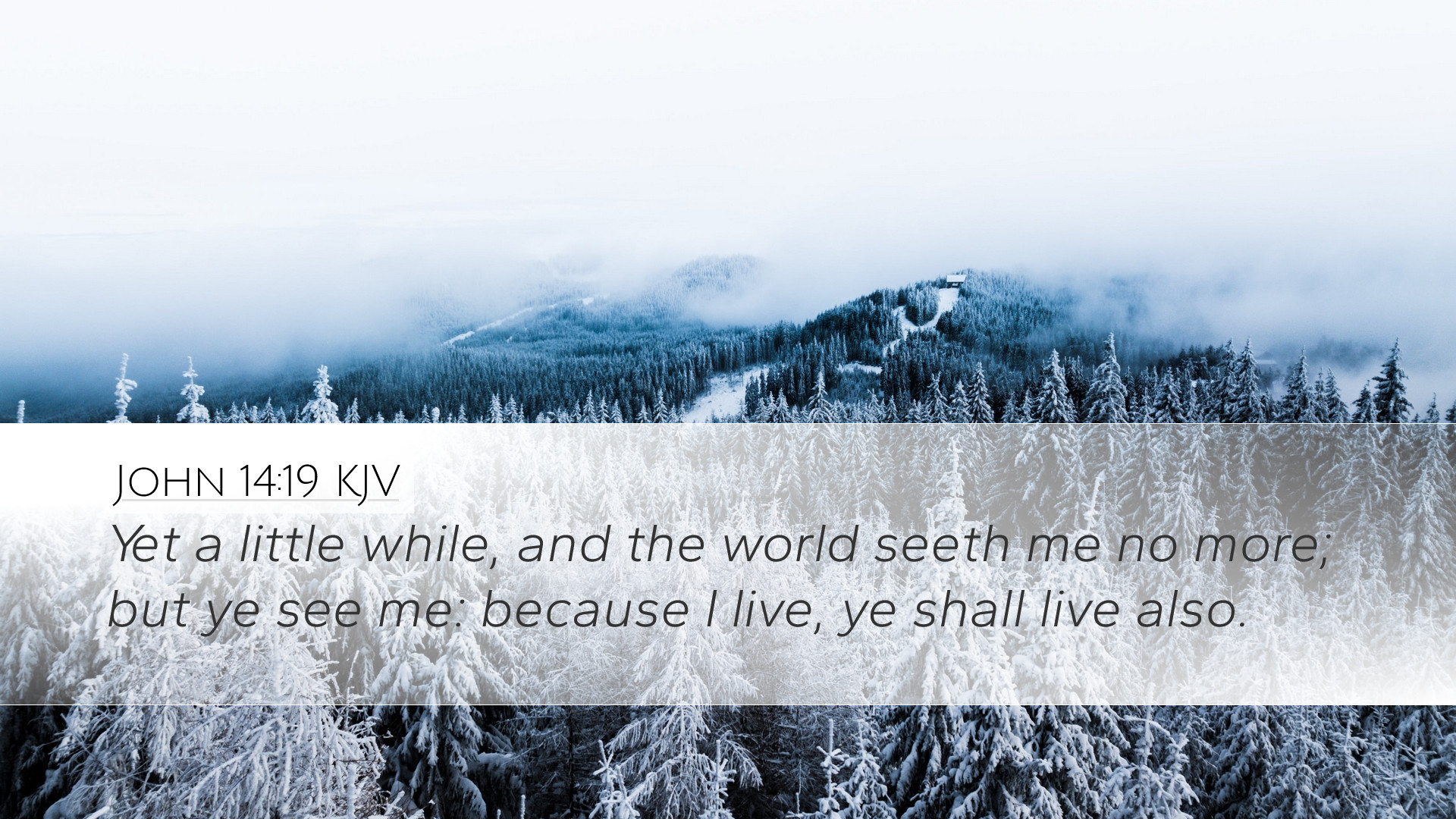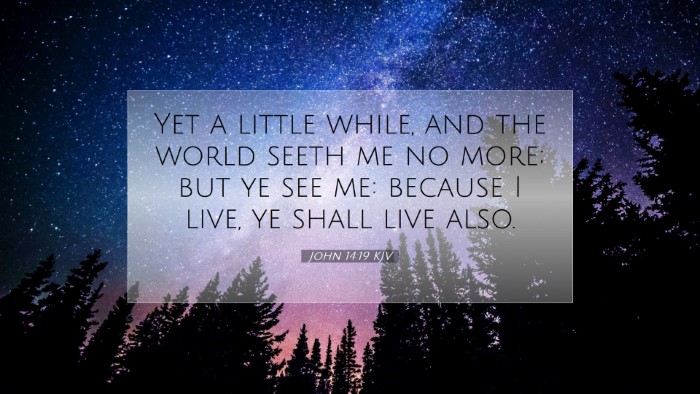Commentary on John 14:19
John 14:19 states, "Yet a little while, and the world seeth me no more; but ye see me: because I live, ye shall live also." This verse forms part of Jesus' farewell discourse to His disciples and conveys profound theological insights regarding the nature of His resurrection, the believer's connection with Him, and the contrast between the world and His followers.
Contextual Overview
This passage must be understood within the larger context of Jesus' impending crucifixion and the establishment of a new covenant through His death and resurrection. The disciples are troubled, and Jesus comforts them by stating the continuity of His presence with them.
The World's Perception
When Jesus states, "the world seeth me no more," He refers to the physical and spiritual blindness of the world. According to Matthew Henry, this signifies that the world, representing unbelievers, will not perceive the reality of Christ's resurrection and His ongoing influence through the Holy Spirit.
- Spiritual Blindness: The world’s inability to see Christ after His departure reflects its rejection of Him (John 1:10-11). Throughout history, many have walked in the darkness of their unbelief.
- Contrast with believers: In contrast, true believers perceive Him continuously, reflecting an intimate relationship established through faith.
Believers' Perspective
When Jesus says, "but ye see me," He emphasizes the spiritual insight granted to His followers. As noted by Albert Barnes, the believers' perception of Jesus is based not on physical sight, but on faith and spiritual understanding. They embrace the deeper implications of His life, death, and resurrection.
- Living Presence: Clarke notes that the continual presence of Christ in the lives of believers gives them hope and assurance. Despite His physical absence, His spirit empowers them.
- Revelation of Christ: This seeing is also a personal revelation; believers experience the indwelling of Christ, allowing them to perceive truths that the world cannot grasp.
The Life That Believers Possess
The latter part of the verse, "because I live, ye shall live also," speaks to the essence of Christian hope. Clarke and Barnes both emphasize the transformative power of Christ’s resurrection. It not only confirms His identity as the Son of God but also extends divine life to believers.
- New Life: The resurrection assures believers of their own resurrection, signifying a new life in Christ (Romans 6:5). This new life is characterized by a relationship with God through the Holy Spirit.
- Victory Over Death: Matthew Henry points out that through Christ's victory over death, believers also share in this victory, which is a core tenet of Christian faith.
Theological Implications
John 14:19 holds significant theological implications regarding the nature of life in Christ. It intersects with themes of resurrection, eternal life, and the believer's relationship with God:
- Essence of Faith: The verse emphasizes that faith is rooted in the living presence of Christ, appealing to the assurance believers have in their salvation.
- Covenantal Relationship: It also illustrates the covenantal relationship, highlighting that through Christ, believers are welcomed into a new realm of existence.
Pastoral Application
For pastors and spiritual leaders, John 14:19 offers critical pastoral insights:
- Encouragement in Trials: This passage serves as a source of encouragement for the weary, assuring them of the perpetual presence of Christ in their lives amid difficulties.
- Further Discipleship: It challenges pastors to guide believers in recognizing and nurturing their intimate relationship with Christ, fostering spiritual growth.
Conclusion
John 14:19 beautifully encapsulates the essence of the Christian experience - seeing Christ through faith and partaking in the life He imparts. Both the comfort and challenge of this verse resonate with the heart of the Gospel, reminding us that Christ lives, and in Him, we too shall live. As individuals and communities of faith meditate on this truth, they are empowered to live out their calling in the world, reflecting the light and life that Christ offers.


